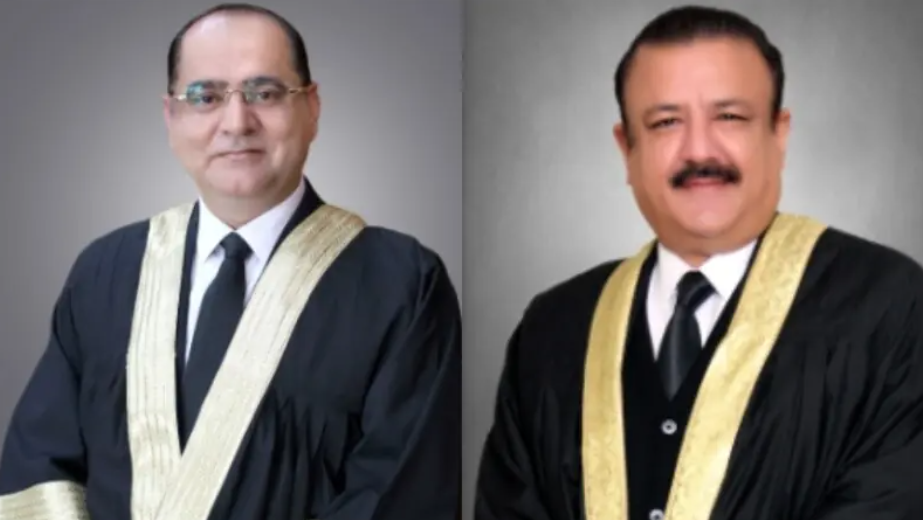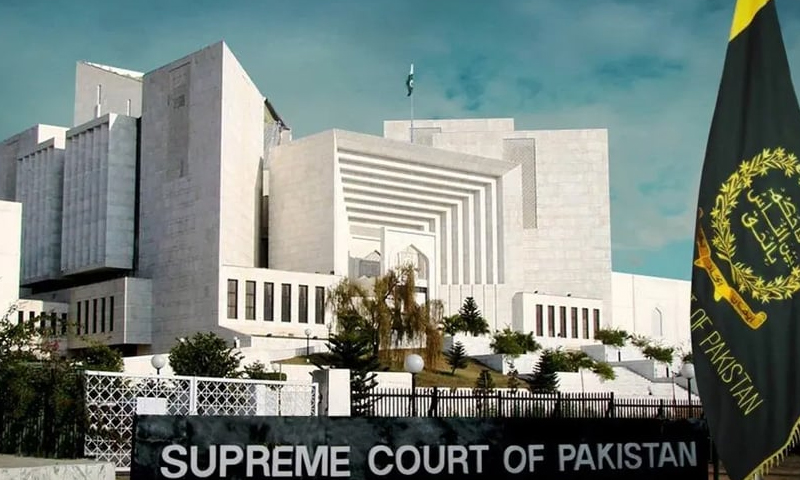LEGAL

Islamabad High Court (IHC) Justice Khadim Hussain Soomro on Tuesday recused himself from hearing a high-profile case questioning the eligibility of Justice Tariq Mehmood Jahangiri over allegations of holding a fake law degree.
The development came as a two-member bench, comprising Chief Justice Sarfraz Dogar and Justice Soomro, took up a miscellaneous application filed by the Islamabad Bar Association (IBA) seeking to become a party to the proceedings.
Following Justice Soomro’s recusal, the bench stood dissolved, and the hearing was adjourned without any further proceedings.
The case revolves around a complaint filed with the Supreme Judicial Council (SJC) last July regarding Justice Jahangiri’s alleged fake LLB degree from the University of Karachi (KU). A petition challenging his appointment had also been filed in the IHC, after a letter—purportedly from KU’s Controller of Examinations—circulated on social media, raising questions about the authenticity of his academic credentials.
Earlier, the division bench hearing the case was reconstituted after Justice Mohammad Azam Khan was replaced by Justice Soomro. The case has undergone several procedural changes since, reflecting the sensitivity and complexity surrounding it.
The IBA, in its plea, maintained that fair adjudication would be impossible without including the bar as a party, given the “fundamental importance” of the matter to the legal fraternity and the rule of law. It emphasised its constitutional role in defending the independence of the judiciary, civil liberties, and maintaining professional integrity among lawyers.
“The Islamabad Bar is resolute in shielding the superior judiciary from attacks, whether internal or external, and in striving for the supremacy of the Constitution,” the application stated.
Case Developments:
On September 16, a division bench led by Justice Dogar had issued an interim order restraining Justice Jahangiri from performing his judicial duties. Justice Jahangiri then personally appealed the order before the Supreme Court, which suspended the IHC decision on September 29, declaring that no sitting judge could be barred from judicial functions through an interim order.
Subsequently, the Sindh High Court (SHC) extended its interim order suspending the KU syndicate’s decision to cancel Justice Jahangiri’s law degree until November 27, as both federal and provincial law officers sought more time to submit their responses.
The original petition against Justice Jahangiri, filed by Advocate Mian Dawood under Article 199 of the Constitution, seeks a writ of quo warranto — a rare legal remedy questioning “by what authority” a person holds public office.
The petition alleges irregularities in Jahangiri’s degree records, including dual enrollment numbers for his LLB Part-I and Part-II examinations. The University of Karachi previously clarified that assigning two enrollment numbers to a single student is “impossible,” adding further weight to the controversy.
Advocate Dawood’s plea asserts that the appointment of a judge lacking a valid law degree is not a procedural lapse but a violation of citizens’ fundamental rights.
Notably, the degree controversy surfaced just days after Justice Jahangiri had been actively hearing election petitions related to alleged rigging in Islamabad’s three constituencies — further heightening public and legal attention on the case.




